|
By Hadas Aron and Emily Holland This week a Russian group hacked into the World Anti-Doping Agency’s (WADA) athlete database and released the private medical records of three leading American athletes: Serena Williams, Venus Williams and Simone Biles. The documents revealed that all three athletes had received medical exemptions to use banned drugs during competition. This comes following the ban of many Russian athletes from competing in the 2016 Rio Olympics due to systematic state-sponsored doping.
Policymakers and academics tend to think of cyber warfare as an issue of national security. Cyber terrorists hack into defense and intelligence targets and use the information to increase their security vis-à-vis targeted organizations. Prominent American targets have included the Pentagon, the State Department and the Department of Defense. Although this is a relatively new field of scholarship, it is termed cyber-security and is studied in reference to theories of terrorism and technology security. However, the targeting of a 19 year-old 4’9” phenomenal athlete can hardly be classified as an issue of national security. How does Russia benefit from targeting these athletes? First, the medical records support an age-old Russian narrative that the system is rigged against Russia. According to this logic, when Russian athletes failed doping tests, it became a worldwide scandal and led to the banning of the majority of the Russian team. When American athletes take banned substances, they are given exemptions by WADA, allowed to compete, and win. We know very little about the process of exemptions, and there is no suggestion that these athletes did anything wrong, but that matters little to the Russian hackers. In Russia, the victimization narrative is supported by many examples: since the end of the Cold War the West has moved to expand its influence countries that were traditionally in Russia’s sphere of influence, like Eastern Europe and the Baltic States. This was done with complete disregard to Russia’s interests and security concerns in the region. Other minor examples include the lack of international outcry over the Russian plane downed in Egypt compared to the response to terrorist attacks in Paris and Brussels. These things cause outrage in Russia and real sense of grievance. Second, the records also promote the idea that the United States is hypocritical. Many Russians think that while the US presents itself as a liberal democratic country, it is actually no different than Russia. The average person on the street in Russia would likely tell you that Russia is a democracy, certainly as much as the United States. Of course, Russia has little to no political opposition and a lack of free media, but in the United States capital and political power are intertwined and the turnover rate in Congress is extremely low. A common view is that while Russia may limit certain individual rights, the United States also does this in regards to certain vulnerable domestic and international populations. Similarly, while it is true that Russian athletes dope, so does everyone else, including Americans. According to the Russian view, Americans should get off their high horse in their dealings with Russia. Finally, consider the images of Simone Biles flipping through the air in the Rio Olympics, her Wheaties box and Serena Williams, with her beautiful athletic form winning dozens of international championships. This is the image that America wants to portray to the world. It is powerful, multi-racial and promotes gender equality. This is exactly the image that Russia wants to tarnish. In general, sports are an instrument of soft power. During the Soviet period, Russian gymnasts were marketed as a sign of Soviet femininity and power, and they won. Larisa Latynina was the most decorated Olympian for 48 years, until her record was broken by Michael Phelps in 2012. Through their athletes, Soviet Union wanted to project normality and success to the Western world. This aspect of soft power should not be taken lightly. States devote significant resources to their sports programs. Of course, one reason for this is health and other benefits to youth, but many of the more advanced programs are designed to create national winners. The United States had an enormously successful 2016 Olympics: the US was first in the medal table with 121 medals overall, 46 of them gold, far ahead of the rest of the pack. In contrast, Russia’s rump team had 56 medals total, 19 of them gold. This new attack is an attempt to even the score. There is no evidence of a connection between the Russian hackers and the Kremlin. However, the group, Fancy Bear (!), has been tied to the G.R.U., Russian military intelligence. In any case, the cyber attack solidifies strong Russian political narratives both domestically and abroad. This is a great example of why the connection between cyber-security and soft-power should receive more attention, especially in the scholarly community.
9 Comments
By Hadas Aron and Emily Holland In an interview with Sean Hannity on Fox News, Julian Assange dropped the bomb that he would release “thousands” of documents that will have a “significant” impact in the upcoming presidential elections. Earlier this election season Assange’s WikiLeaks published emails from DNC officials leading to the resignation of DNC chair Debbie Wasserman Schultz amongst others. Now he has announced that he will put out some “teasers” and then release documents about Hillary Clinton, the DNC and the upcoming presidential election. As liberal academics whose normative inclination is to open information democracy we were surprised that our reaction to Assange was negative. Perhaps we are the type of liberals who only stand by our liberal values when it is convenient. But maybe there is more to this aversion of Assange and his tactics. Assange continuously presents himself as a champion of transparency and freedom of information. But in fact, WikiLeaks chooses which information to present, how to publicize it and the most effective timing for achieving its goals. WikiLeaks has had these emails for months and could have easily published all of them together, letting readers decide for themselves what is important. Publicizing “teasers” of the emails and timing their release before the height of the presidential race goes far beyond the admirable goal of freedom of information. Assange and WikiLeaks have a political goal and framing it under the guise of freedom of information is misleading. Some, in particular those in the Democratic Party, accuse Assange of having ties to Russia. We do not have the information to weigh in on this accusation, especially because there is a war of narratives between the U.S. government and Assange, both of whom are powerful media actors (of course the US has the advantage here). But it should be noted that freedom of information in the world since the inception of WikiLeaks is not on the rise. Many regimes, including Russia, have become less transparent in the past decade despite the rise of open information online. Another prominent example is China: despite the enormous rise in internet availability the state still controls the flow of information and government processes are still very opaque. The online revolution of information seems to affect only liberal democratic regimes. Assange presents himself as the prophet of free information unveiling the dark secrets of powerful actors. But in fact free information is not a new phenomenon. Although the technology has changed, whistleblowers have always been influential in politics and other arenas. Throughout history insiders have uncovered plots and secrets and mobilized popular support accordingly. There were numerous plots revealed during French Revolution that influenced the course of events, the Dreyfus affair hinged on notes found in a trashcan, and of course Watergate and the Pentagon Papers were scandals around the release of secret information. Assange did not invent whistleblowing and in fact WikiLeaks has had probably less effect than these pre-internet examples. Today there is a massive amount of information being leaked: they key to its usefulness is selection and interpretation. Traditionally this is the role of the media. Assange argues that in the age of Internet there is no need for elite gatekeepers to filter information to the masses, but in fact he is himself assuming the role of an elite gatekeeper without honestly acknowledging it. We support freedom of information and believe in transparency. But it is important to remember that all information comes with an agenda, whether it is the agenda of the US government or the agenda of Julian Assange. These actors are so powerful it makes it difficult to identify the agenda, especially when they are not being honest about it. We believe that the role of the media as an interpreter and communicator of information, with its own agenda, ideally to support liberal democracy, is as important as ever. By Hadas Aron and Emily Holland When swimmer Russian swimmer Yulia Efimova entered the Olympic swimming pool in Rio ahead of the 100m breaststroke finals the crowd booed loudly. Efimova, who had previously been banned from competition twice for doping, is a controversial figure at the Rio Olympics and has been embroiled in a major drama over the race to gold in the breaststroke. It was another chapter of the ongoing drama in the breaststroke race. Efimova’s chief contender, Lilly King, had said in an interview after the semi finals, “You’re shaking your finger ‘No. 1’ and you’ve been caught for drug cheating…I’m not a fan.” The crowd in Rio was not a fan either. King went on to win the gold medal and did not hesitate to rub it in, exclaiming to the press, “It just proves that you can compete clean and still come out on top with all the work you put in.” No one likes a cheater, so at first glance it seems only natural that the crowd sided with King: the Russian doping scandal dominated the headlines before the games even began, and Efimova herself failed a substance test twice. But beyond unsportsmanlike behavior, the Russian swimmer’s response to critics made a valid point, “I always thought the cold war was long in the past. Why start it again, by using sport?”
Booing Efimova may be about sportsmanship on the surface, but it reflects a deeper cultural paradigm on both the individual and the international levels. On the individual level, as much as Westerners would like her to be, Efimova is hardly a Russian uber villain. As elaborated by Sally Jenkins in The Washington Post, Efimova trains in Los Angeles rather than Russia. Her first doping offense was due to a banned substance found in a legal supplement she bought at GNC and was deemed an honest mistake. Her suspension was accordingly reduced. The second offense was caused by a prescribed medication provided by her Russian doctors that was only banned in January 2016. The timing of the ban and the fact that she may have consumed the substance only before it became banned and is the reason she was allowed to participate in the Olympics in the first place. Despite media coverage to the contrary, Efimova is a talented swimmer, and not an evil Russian spy. Because we are political scientists, the international aspect of the Efimova affair is even more interesting to us. We agree with Efimova (not about everything: swimming the breaststroke seven hours a day sounds almost worse than writing a dissertation): there is a definitive Cold War vibe to these Rio Olympic Games. Under the guise of clean sports, the so-called Western world is aligning behind the US and showing open hostility toward Russia and even its traditional allies. True, the scale of the Russian doping scandal is likely huge, but other countries have been implicated in similar doping scandals before and received have been much less vilified. Jamaican athletes for example, have persistently failed drug tests, and yet, while the suspicion toward Jamaican athletes is present, the hostility is decidedly absent. As the Russians rightly pointed out, doping in sport is universal, but few countries are openly booed by the international crowds and antagonized by their peers. As we argued before, the Olympics is ultimately an exercise in nationalism, and vilifying Russians is familiar territory. In the eyes of Westerners, and particularly Americans, Russians are already villains, so any evidence of their “evil ways” underscore old narratives and seem to prove what we already know to be “true”. Although the US has made new “evil” enemies since the end of the Cold War, international terrorists do not compete under their own flag in the Olympics. Countries from which terrorist emerge are either victimized, and thus worthy of our Western pity, or are not competitive at major sports so we never even get the chance to see them. In this soft power game only the big kids can play, and so only the big traditional international animosities reemerge. But wasn’t there a time when Americans didn’t hate the Russians and everyone just got along? Of course, but it was during the 1990s when Russia was weak and non-threatening both on and off the podium. The idea that large ideological international competitions are being played out in microcosm at the Olympic Games is underscored by the wide range of participants. Lily King and the Americans aren’t the only bullies on the playground: Australia’s Mack Horton called China’s Sun Yang a drug cheat, with France’s Camille Lacourt jumping in and accusing Yang of “pissing purple.” The reaction was swift and telling: in the wake of the accusations Chinese media and social media users called the remarks “disrespectful to China” “evil”, “gross” and “ignorant.” One user Chinese user wrote, “There is a scientific explanation for why he [Horton] swims so fast. It’s because he’s light, he has no brain.” One of the projects we have been working on is about international state reputations: how, why and under what conditions are they are formed? Can countries do something to change them? When will these efforts succeed? The Olympic Games are great opportunity to examine the persistence of state reputations in popular media and culture because the whole point of the games is one of friendly international competition. The reaction to Efimova and Sun Yang show that despite major changes to the international system, Western attitudes towards our traditional rivals have long shadows. By Emily Holland and Hadas Aron Every four years, people all around the world, many of whom are otherwise uninterested in sport (I’m looking at you political scientists), are drawn to their couches to eat pizza and cheer as athletes perform super human achievements. But in addition to the anticipation, melodrama and tension of watching Simone Biles twist and flip through the air, the Olympics is a fascinating study of international relations in practice. Here, we examine the Olympics with the “impartial” eye of trained social scientists, applying the theories we struggle to teach undergraduates to several aspects of the games.
By Emily Holland In the long-list of incendiary and shocking comments to have escaped from Donald Trump’s mouth in recent months, his recent call inciting the Russian intelligence services to conduct cyber-espionage against his opponent Hillary Clinton is amongst the most shocking. “Russia, if you’re listening, I hope you’re able to find the 30,000 emails that are missing. I think you will probably be rewarded mightily by our press”, exclaimed Trump in a press conference this week. In this wake of this comment, news outlets have pounced on Trump’s soft stance towards and apparent connections with Russia. But his borderline-treasonous remarks aside, Trump’s calls for improved relations with Moscow are not unreasonable. What is more troubling is not that his associates have links to Moscow, but the fact that they are his associates at all. Trump’s campaign chairman, Paul Manafort, has worked extensively with disgraced and exiled former Ukrainian president Viktor Yanukovych, helping him win the 2010 Ukrainian presidential election. Yanukovych was famously overthrown in the Maidan Revolution, his now abandoned Mezhyhirya palace a symbol of dictatorial opulence. Although Manafort’s association with Yanukovych is distasteful, it is hardly illegal. But what is seriously worrying is the fact that Manafort worked extensively in Ukrainian politics at all: as I have written before, Ukrainian politics is amongst the most corrupt and venal in the world. If Manafort helped Yanukovuch win the 2010 election, he necessarily participated in corrupt practices. Manafort is not the only Trump associate to have links to an extremely corrupt industry. The coordinator of the Washington diplomatic corps for the Republicans in Cleveland was Frank Mermoud, a former state department official and director of Club Energy, a Ukrainian oil and gas company. My own dissertation research demonstrates the endemic corruption of the oil and gas industry in many former Soviet states. Ukraine’s energy industry is shockingly corrupt: the murky ties between Moscow, Kiev and third-party “gas middlemen” are extensive. This in part explains why Ukraine has been so unsuccessful at weaning itself of dangerous energy dependence on Moscow despite two major crises in 2006 and 2009. In the wake of the 2006 Russo-Ukrainian “gas war”, which left Ukraine without access to natural gas supplies in the middle of winter for several days, Gazprom, the Russian state gas conglomerate, and Naftogaz Ukraine, the Ukrainian state energy company, signed a new contract to end the dispute. One of the provisions of the contract stipulated that Russia would not deliver gas directly to Ukraine but would deliver instead to a third party: RosUkrEnergo. RosUkrEnergo is co-owned by Ukrainian oligarch Dmitry Firtash, who has made billions by buying Russian gas on the cheap and selling it to Ukraine at inflated prices. In my estimation, at certain point between 2006 and 2009, Firtash’s RosUkrEnergo was making between $3 and $5 million a day in profits at the expense of the Ukrainian state. Why would Kiev sign such an unfavorable contract? The answer is simple: corruption. So what does all of this have to do with Donald Trump? First, Manafort has also made millions off Ukraine’s energy insecurity: he worked as a consultant for none other than Dmitry Firtash. None of this is new information that Trump could possibly be unaware of: Manafort’s relationship with Firtash was first exposed in 2011, in a racketeering lawsuit that was later dismissed. Firtash, now in exile in Moscow, is now under indictment in the US. Second, Manafort also helped Firtash channel Russian money into influencing the outcome of the Ukrainian presidential election. During the time he worked with Manafort, Firtash used an $11b loan from bankers closed to Putin to back pro-Russian Yanukovych in his successful 2010 presidential campaign. Manafort and Mermoud are not the only Trump associates who have worked extensively in corrupt industries: Carter Page, Trump’s foreign policy advisor, worked closely with Gazprom for many years. To be clear, US politics is not squeaky clean. US campaign finance and lobbying are dirty businesses and are in need of profound restructuring. But Trump’s associates have made their careers working in some of the most corrupt industries in the world: the fact that Manafort has worked in Ukraine’s energy industry and has been involved in the installation of a pro-Russian president in a Ukrainian presidential election means that he has no scruples. The Ukrainian people have been embroiled in violence, revolution and now civil war in an attempt to rid themselves of endemic corruption of the political system, largely without success. The fact that Trump willingly chooses associates that perpetuated this corruption should be far more worrying to the American people than the prospect of a thaw in relations with Moscow. By Emily Holland and Hadas Aron In what seems like a new Olympic tradition, scandals over corruption, shoddy construction, and even kangaroos have dominated the headlines in preparation for the 2016 Summer Games. But amongst the usual crimes, Russia’s doping scandal stands out as particularly shameful. Although Russia avoided a blanket ban from the IOC, many Russian athletes, including the entire Track and Field team, will not be allowed to compete in the 2016 Olympic Games. But while the ban represents a huge personal tragedy for the athletes involved, the scandal may in fact be a win-win situation for Moscow.
By Hadas Aron and Emily Holland Even before Obama took the stage yesterday we were texting with each other from different coasts about the hopeful message of the Democratic National Convention and American optimism more broadly. Hope is everywhere, in the Love Trumps Hate chants, the Broadway stars’ rendition of “What The World Needs Now”, the cool video to “Fight Song”, Tim Kaine’s dad impressions, and Joe Biden’s strong speech. But of course no one expressed this message better than the greatest orator of our times, President Barack Obama.
If we thought this election was about experience, capabilities, feminism, immigration, race, guns, or terrorism, we didn’t quite get it right. Through his smart and very moving speech, Obama managed to decisively own the framing of this election: it’s about hope versus fear, stupid. So far, this is the most convincing case for Hilary Clinton, because America is a hopeful place. During the Great Depression America elected FDR, during the economic crisis of the late 1970s America elected Ronald Reagan and eight years ago America elected Barack Obama. The only exception to this pattern is the election of President Nixon. Trump looks to Nixon when shaping his message, but even Nixon combined hope in his message of fear. In fact, Trump actually resembles European populists far more than he resembles American presidents. It is no wonder that Europe’s populists lend him their support. The optimism of American politics is unique: the speeches of both Michelle and Barack Obama were emotional appeals to the strength of the American dream. The US is dramatically different from Europe in this respect: here there is open access to patriotism across the political spectrum. It is unimaginable that German or French or Israeli liberal-leftists would chant their country’s name or speak of their country’s greatness with such ease. As we have pointed out before, most liberal Germans would not even think of waving a German flag: it is seen as bordering on Nazism. In most European states the national language and symbols are owned exclusively by the right. Yet the power of American liberalism is that it can credibly invoke national symbols. This is a powerful emotional asset that the left in Europe has long given up on, and it enables American liberals to broaden their coalition far more than their European counterparts. But even Obama’s triumphant final message to the American people last night does not mean that hope always conquers fear. Trump’s uses fear mongering and appeals to quasi-fascist symbols because he knows they work as an appeal to the disenfranchised. One only needs to look to the worldwide trend of demagogues that use this message to stay in power. Hilary Clinton still faces a challenge ahead, and only a decisive victory will serve as a real rejection of the message of fear and hatred. A couple of odds and ends The DNC looks like a multicultural party compared to a very grim, very white RNC. There’s no question where one would rather spend an evening. Can we please have some of President’s Obama’s skills for the classes we teach? The ability to clarify complex ideas in a sentence is truly admirable. “We don’t look to be ruled” is everything we’ve been trying to tell our students about American democratic history. Thank you Mr. President. In general. By Hadas Aron and Emily Holland The central message of the Republican National Convention in Cleveland has been nothing short of apocalyptic. Former Navy Seal Marcus Luttrell summed it up ominously, proclaiming, “The world outside our border is a dark place, a scary place.” According to RNC speakers, and in particular Mr. Donald Trump, very scary things can happen inside our borders as well and it is illegal immigrants that are chiefly to blame. Of course, anti-immigration discourse is not a new phenomenon in American politics. Different periods of global change and economic insecurity throughout history have engendered demagogue agents with similar xenophobic sentiment. The atmosphere of fear and loathing that has pervaded the RNC is reminiscent of the tactics used in the1920s by the Ku Klux Klan.
From the very beginning of his campaign, Trump’s rhetoric has resembled that of the 1920s Klan. To understand the basis of these similarities it is important to examine the challenges facing American white middle and lower classes at the time that in many aspects closely mirror the challenges facing contemporary Americans. The Klan responded to changes in economic structure that were threatening small business owners, rapid urbanization and the fear of urban criminality, and an unprecedented wave of immigration. Trump consistently highlights the same issues in his speeches, appealing primarily to white men without a college education. Of course, the KKK is most identified with white supremacist violence. In the South the Klan did employ violent discourse and methods, and members of the movement were involved in a myriad of violent attacks including public lynching. In other parts of the US however, the movement’s focus was different, and closely resembles Trump’s current narrative. Though the Klan of the 1920s is less well known than the Klan of the 1860s or 1960s, it was in fact a hugely popular movement that managed to recruit up to five million members across the United States. While the Klan spread fear of Catholics and Jews, who they argued presented a threat to American values and the American way of life, current Republicans spread fear about Latin American immigrants and Muslims. “Illegal immigrants are roaming free to threaten innocent citizens,” Donald Trump announced in his concluding remarks at the RNC. Senator Jeff Sessions gave a speech denouncing “lawless” immigrants who claimed are stealing American jobs. Sessions concluded his speech with a rousing “Donald Trump will build a wall. Donald Trump will make America great again!” These sentiments, which are the defining feature of the RNC agenda, closely resemble Klan statements in the 1920s. Klan Imperial Wizard Hiram Evans proclaimed, “…we believe that all foreigners were admitted with the idea, and on the basis of at least an implied understanding, that they would become a part of us, adopt our ideas and ideals, and help in fulfilling our destiny along those lines, but never that they should be permitted to force us to change into anything else.” In a 1923 statement to the New York Times about the movement, a member of the Klan said “Their membership is drawn from the body of the people…the kind of men who made America great. I consider the organization a splendid influence for God and a strong factor in maintaining Americanism.” The protection of “Americanism” and rejection of multiculturalism is also a strong theme of current day Republican rhetoric. The Klan’s “100% Americanism” campaign echoes both Republican “American exceptionalism” mantra and the exclusionary message neatly folded inside it. The comparison is bittersweet. On the one hand, the Klan’s success was finite: membership peaked in the early 1920s and the organization nearly vanished entirely by 1925. On the other hand, the sentiment of hatred and exclusion is persistent and can have long lasting consequences. The Klan’s success led to tensions within communities and the xenophobic and racially discriminatory Migration Act of 1924, which took decades to overturn. While Trump and his rhetoric might disappear in the near future, they are bound to leave a scar on an already troubled nation. By Emily Holland and Hadas Aron Angela Merkel has long dominated the liberal political sphere in Europe. But as Theresa May moves into No. 10, it has become increasingly clear that women are taking their place at the head of the table in conservative politics. After David Cameron’s resignation in the wake of Brexit, both Boris Johnson and the Machiavellian Michael Gove were swiftly dispatched with in the battle for Tory leadership. Left standing were Home Secretary Theresa May and Energy Minster Andrea Leadsom, two conservative women on opposite sides of the Brexit debate.
Leadsom took herself out of the running last Monday, saying that a leadership struggle at such a “critical time” for the UK would be “highly undesirable.” She also apologized to May for suggesting in a newspaper interview that being a mother made her a better candidate for leader than childless May. The UK press has unsurprisingly seized on this exchange after Theresa May spoke in an interview about her sadness at being unable to have children. Of course, in the case of female candidates, media focus often shifts to their family lives, and their fulfillment of traditional roles, even in supposedly egalitarian western societies. Beyond the inherent sexism, centering the conversation around the fertility of the two potential candidates for PM of Britain also misses the point: Theresa May, whose controversial policy of reducing immigration from outside the EU was facilitated by “go home vans” which drove around the country offering illegal migrants help to return to their home countries, is set to lead a major power through a geopolitical transition of huge proportions. Marine Le Pen has become increasingly relevant in France, no more so than in the wake of Brexit. Although it is a mistake to conflate May’s conservatism with Le Pen’s racist far right policies, conservative women leaders occupy a particular place in politics. It is clear that voters are revolting against the liberal economic policies that have been in place in the US and Britain since after WWII and are embracing populism as an antidote to our unsettled times. But are women conservatives especially appealing during certain periods? One possible answer is demonstrated by the case of the French National Front. Current party president Marine Le Pen portrays the “clean” version of her extremely controversial father and former party president, Jean-Marie Le Pen. Both promote the same exclusionary, racist, and protectionist policies. Voters for the daughter thus get the father’s policy in a more palatable package. It might be the case that for voters women appear less bellicose and therefore less threatening when championing radical politics. Although Theresa May voted against Brexit, she is no liberal. May’s tough stance on immigration notwithstanding, she once argued that Britain should ditch the European convention on human rights. Yet even liberal British news outlets like the Guardian describe May as “calm”, “thoughtful”, and “the vicar’s daughter…with a puritanical streak.” As much as we may poke fun at the Daily Mail, it is the world’s most read news outlet, and their main feature story on Theresa May is titled, “How Theresa May will makeover Downing Street kitchen.” Although it remains to be seen how Theresa May will be portrayed by the media and understood by UK citizens in the days and years to come, it is worth examining the tropes of female conservatives and how differently they are understood than their male counterparts. While Boris Johnson was often ridiculed as a buffoon prone to outbursts, his policies are not radically different from May’s, who instead of being ridiculed for her hair, is lauded for her “love of leopard print and penchant for a splash of color.” By Emily Holland and Hadas Aron The attack on families celebrating Bastille Day on the Promenade des Anglais in Nice marks the third terrorist attack on French soil in 18 months. The horrific attack came only hours after President Francois Hollande announced that the state of emergency that was declared after the Paris attacks in November would finally be lifted on July 26. Hollande had to retract his decision: the state of emergency will continue. But while there needs to a full reckoning on the part of the intelligence and security services, history makes clear that a protracted state of emergency in which liberties are suspended will not protect French citizens from terror.
After an emergency meeting, French PM Manuel Valls confirmed that parliament would vote next week to extend the state of emergency that grants the police new powers including the power to hold people under house arrest without the order of a judge. Police also have the power to raid suspect’s homes without a warrant or judiciary oversight. The state of emergency also allows for restrictions on large gatherings. Although opinion polls show that the public is largely in favor of these measures, lawyers and UN human rights specialists have warned that “the lack of clarity and precision of several provisions of the state of emergency and surveillance laws” will “seriously impact public freedoms. Aside from the fact that these measures erode liberty and increase discriminatory practices, it has been demonstrated that emergency measures are largely ineffective. Not only does it exhaust already overextended police forces, but targeting minority populations who already feel disconnected from society at large risks alienating them even further. As we have seen in yesterday’s attacks, most terrorists are home grown, and their tactics are evolving in response to a crackdown on traditional sources of weapons. Although the use of a car to kill pedestrians has been relatively rare in Europe, this tactic has been employed repeatedly in Israel and the occupied territories in a series of lethal attacks. Yesterday’s horrific attacks show that a state of emergency is ineffectual against a French citizen who chooses to use a rented truck as a weapon. In fact, security measures to help minimize the effects of terrorism or even prevent it require far larger resources than a legal state of emergency. In countries like Israel or Turkey where terrorism is prevalent, security is present and visible everywhere. This ranges from armed security personnel at every public and commercial building, shopping center or school, compulsory bag checks, no traffic security zones around every public gathering and road blocks. In these states, a car driving into a crowd in a known gathering and killing dozens would be inconceivable. However, this kind of security requires resources western democracies might not be ready to allocate. Terror prevention measures cost money that has to come from somewhere: the usual victims are welfare, education and culture. The visibility of these measures also makes life less convenient and can seem to citizens as if terrorism is changing the face of their country and their daily lives. Sadly, it does. The changes that terrorism brings need to at least protect the lives of citizens as well as be sensitive to relationships between communities. Instating a state of emergency in France is the exact opposite. The French law governing the état d’urgence dates back to the Algerian war for independence, when it was put under a prolonged state of emergency for over two years, well beyond conclusion of hostilities in Algeria. The 1955 law was designed to crack down on the Algerians: not only by controlling them militarily, but also by restricting their freedom of movement and preventing them from gathering to exchange ideas. The state of emergency was also designed to give the government as much power as possible without declaring a state of siege-which would have handed power over to the military for the duration of the crisis. During this period French forces used systematic torture, population transfers and interment camps, and was accompanied by the “Algerianization” of the home front. In a particularly shameful incident, the law was used to impose a curfew for French Muslims in Paris who defied it by staging a peaceful demonstration in 1961. The French police attacked, killing hundreds. The government did not acknowledge the massacre until 2012 and the number of fatalities is still unconfirmed. Addressing the nation on Friday morning, Hollande announced, “France has been struck on the day of her national holiday—July 14, Bastille Day—the symbol of liberty, because human rights are denied by fanatics and France is clearly their target.” But responding to terror by suspending the very liberties that define France is a mistake. The aim of terrorists is to fracture society along already tense cleavages. The French government must pursue a clear-long term strategy for dealing with a serious radicalization problem, but they must do so by respecting the values of the Republic: liberté, égalité and fraternité. |
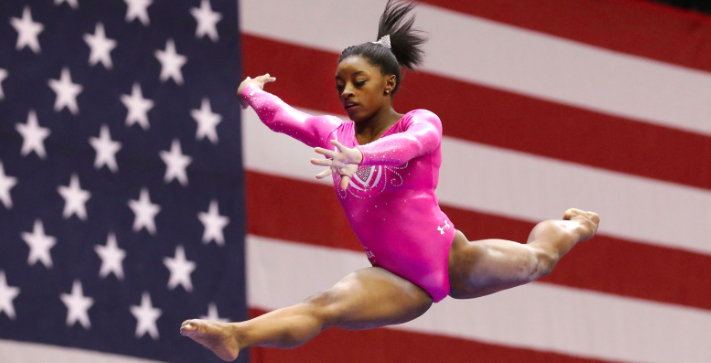
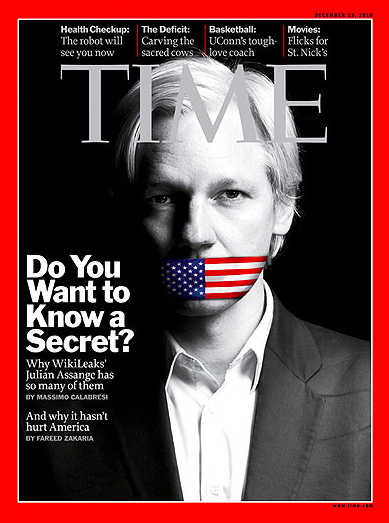
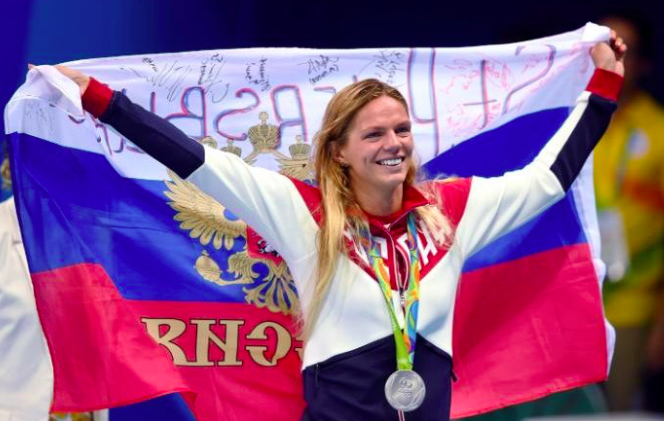
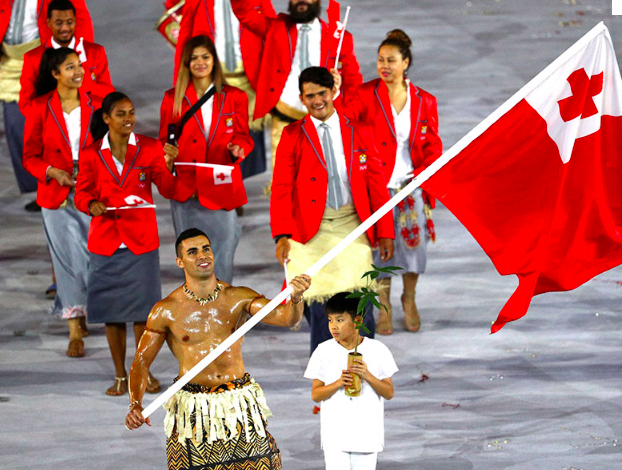
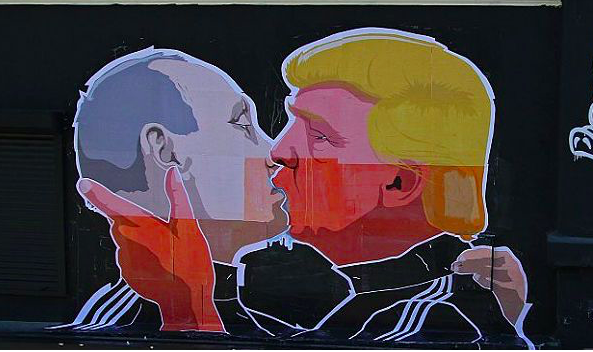
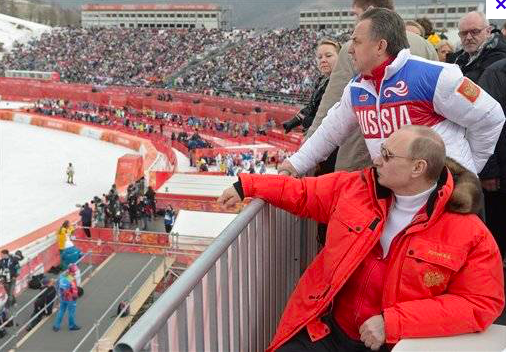
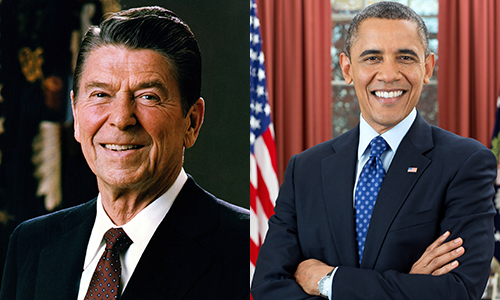
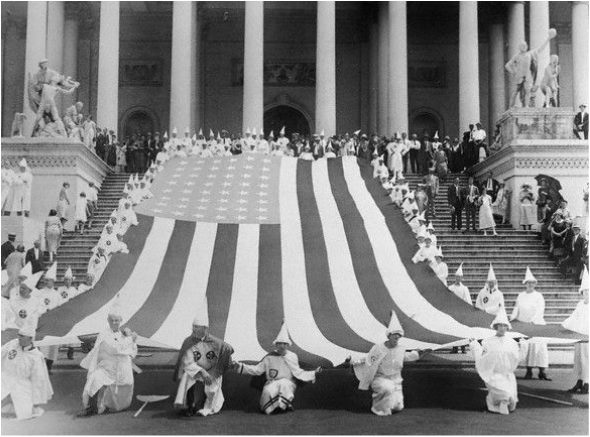
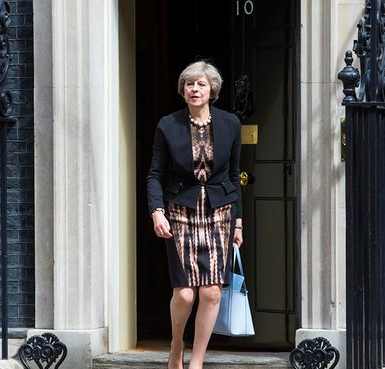
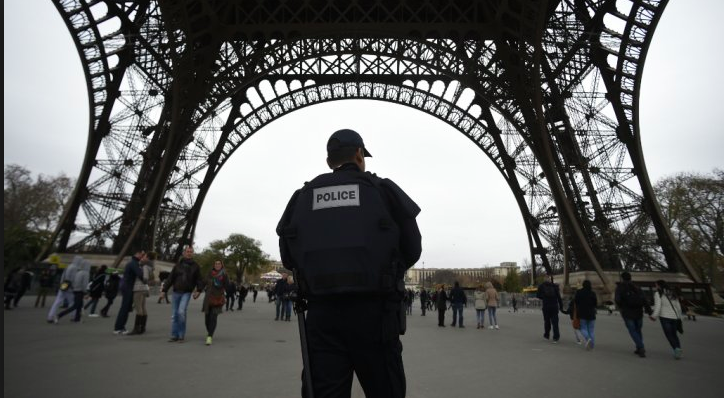
 RSS Feed
RSS Feed